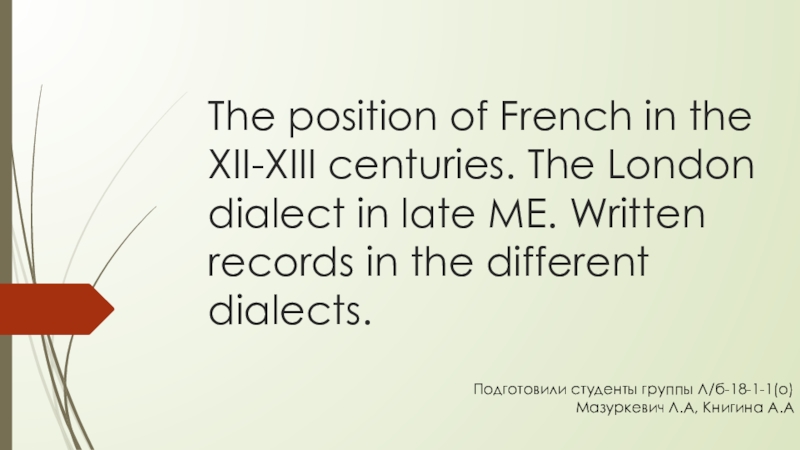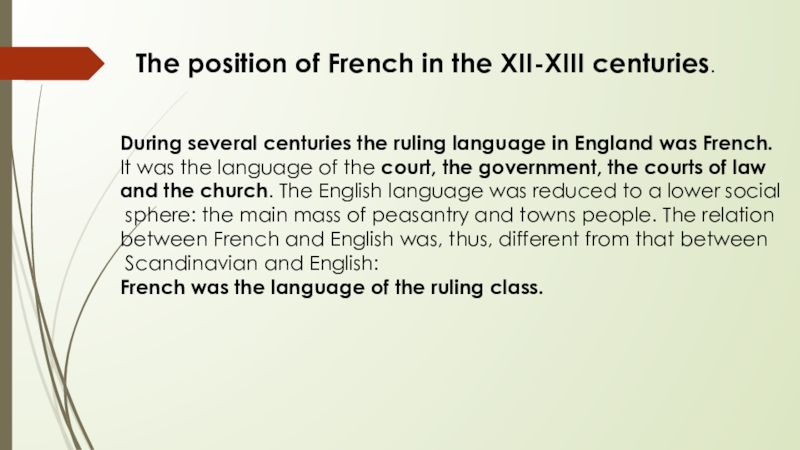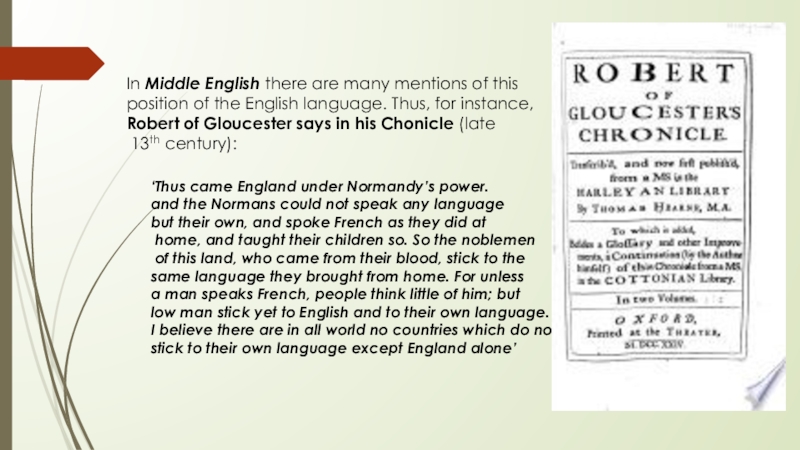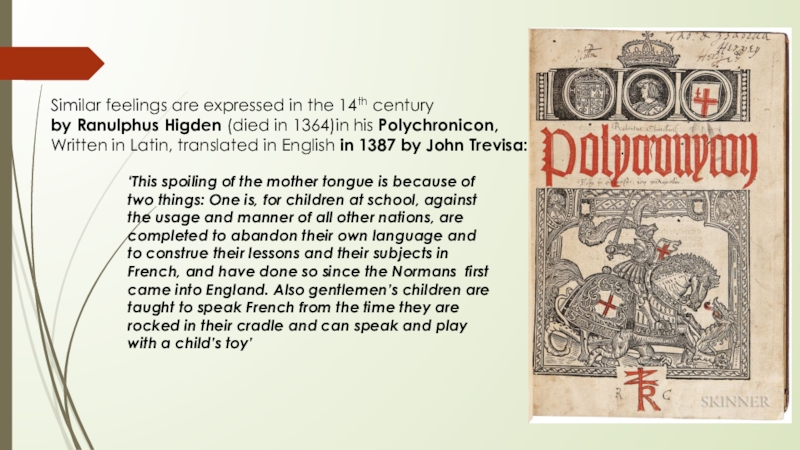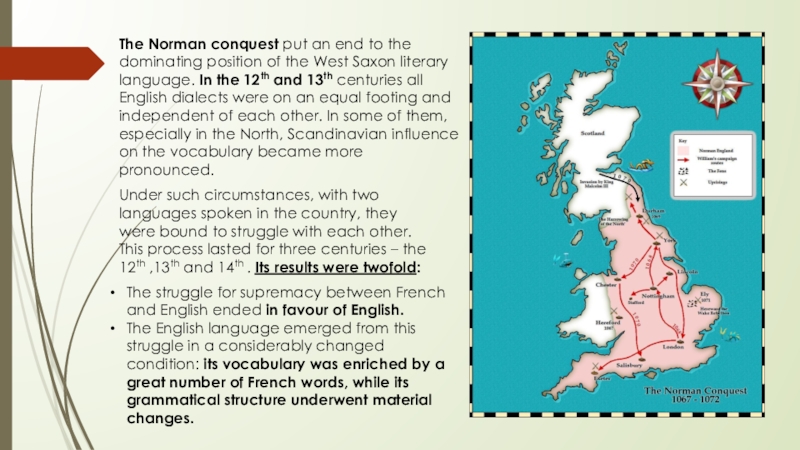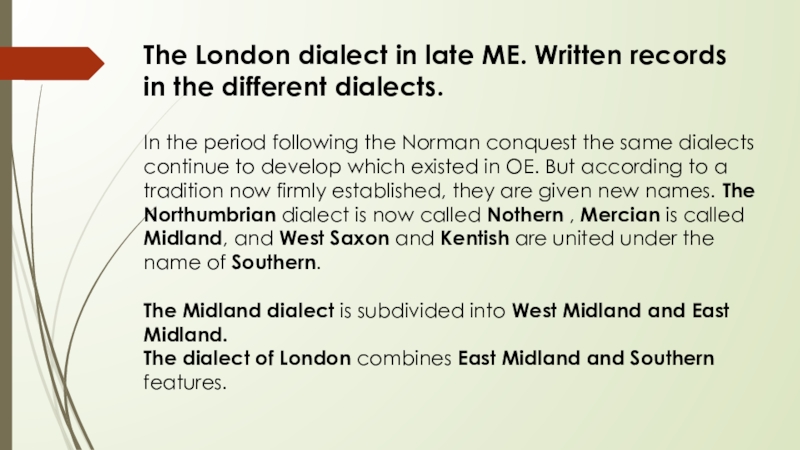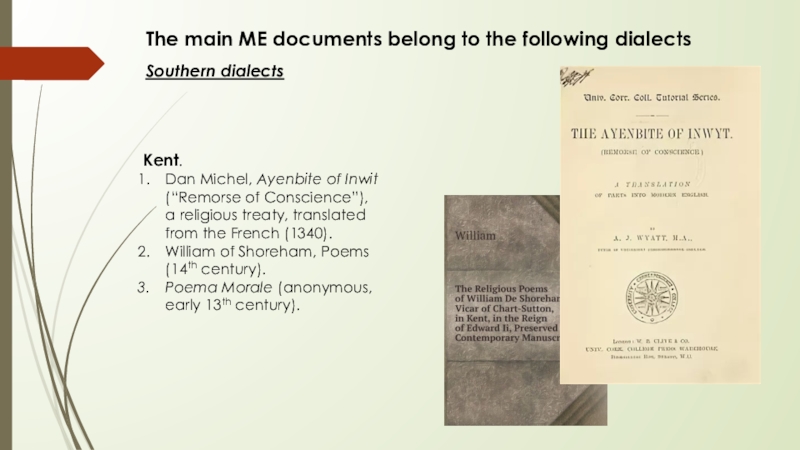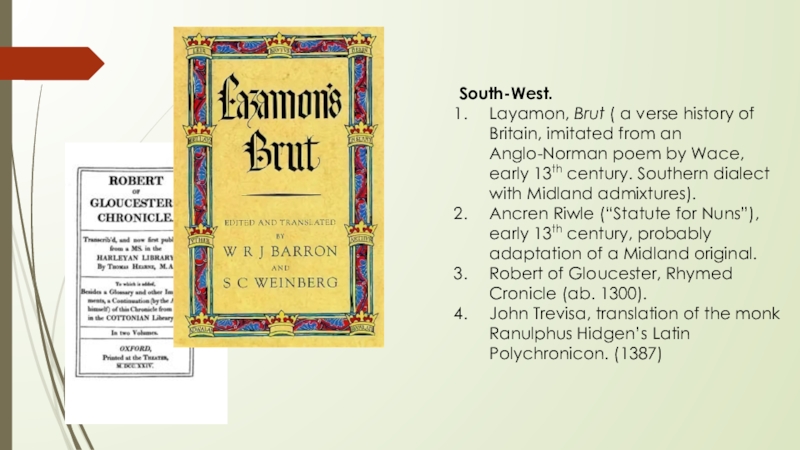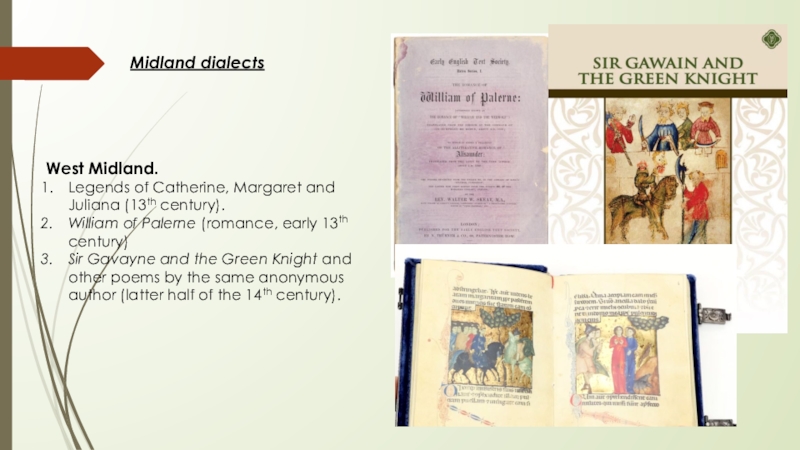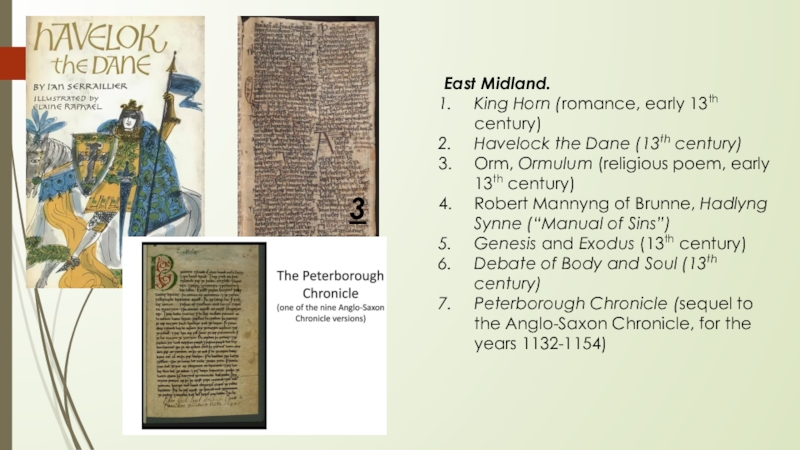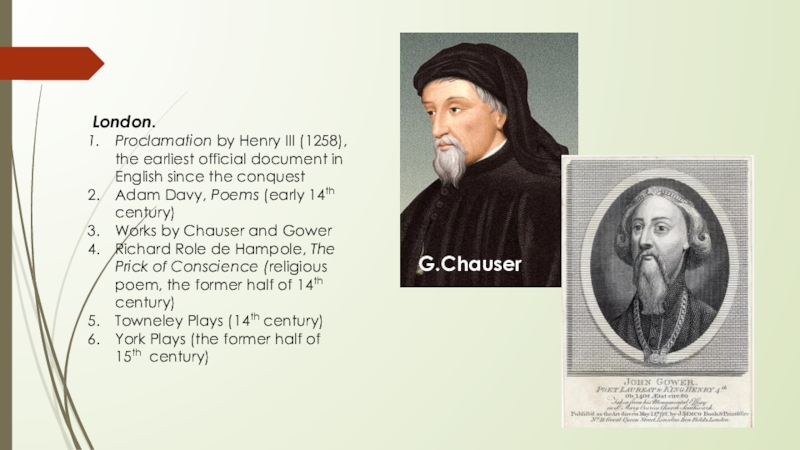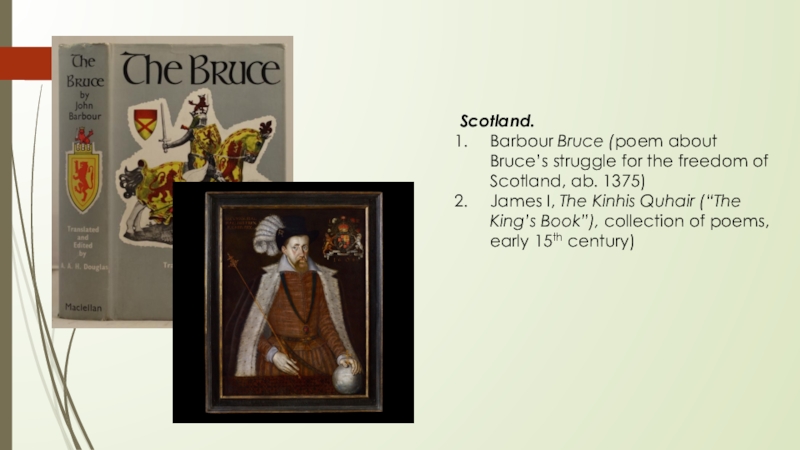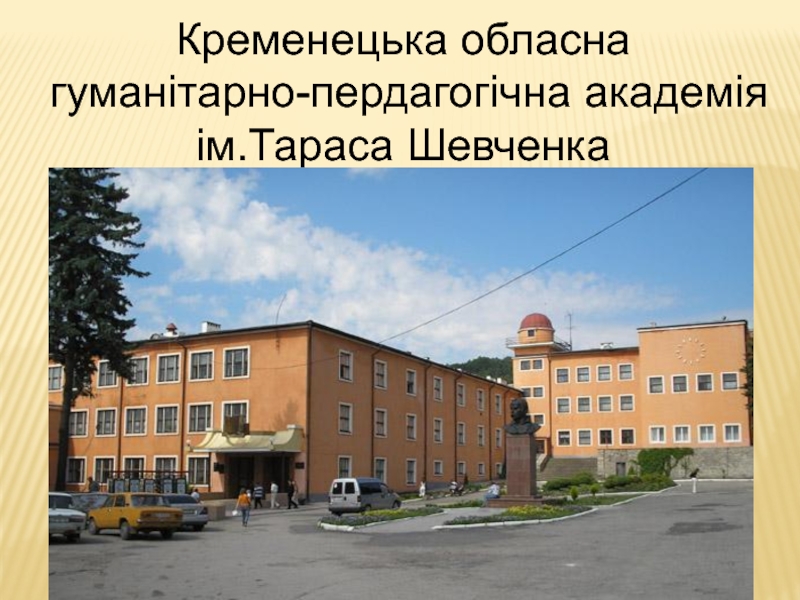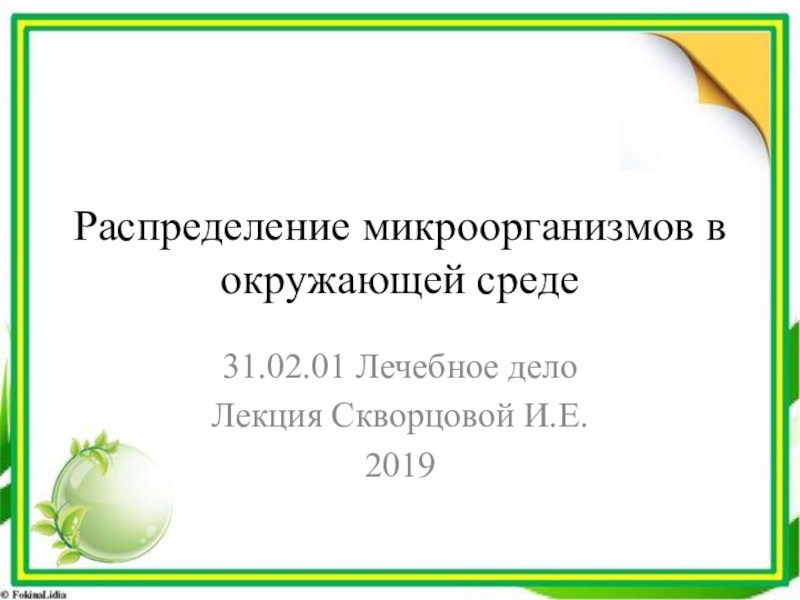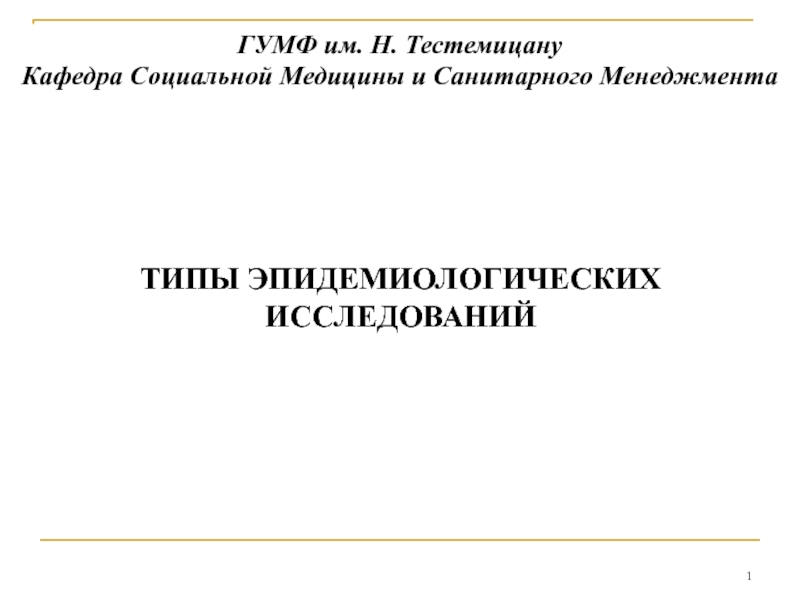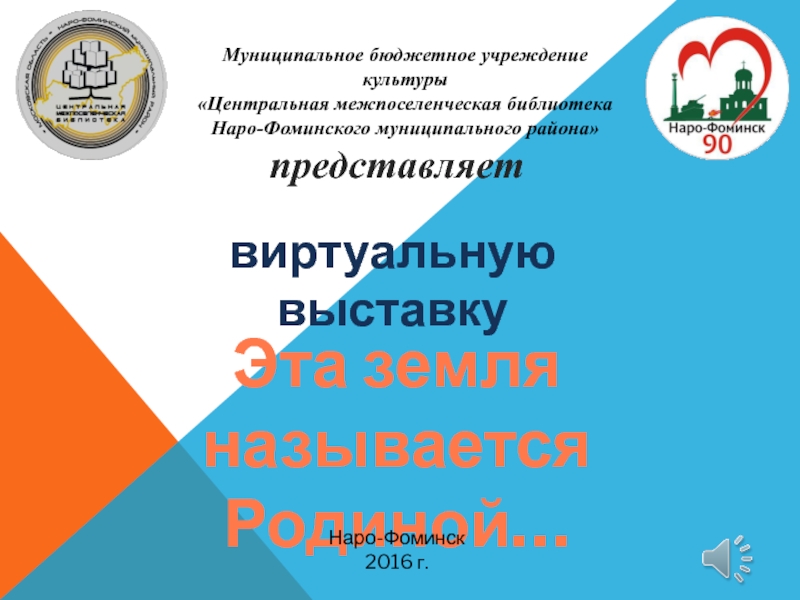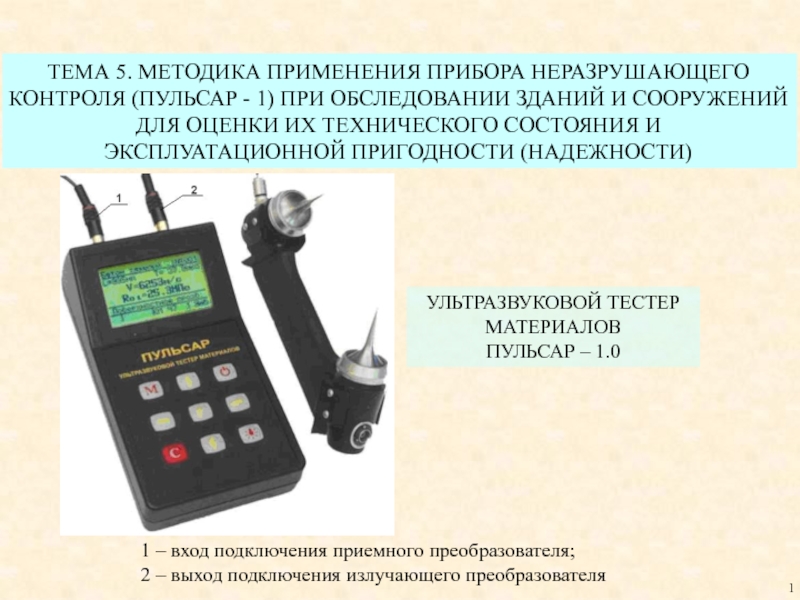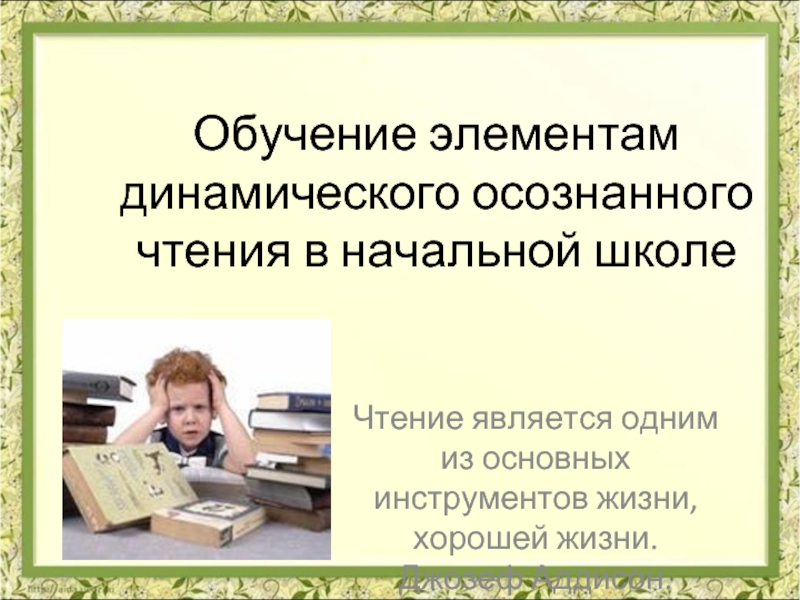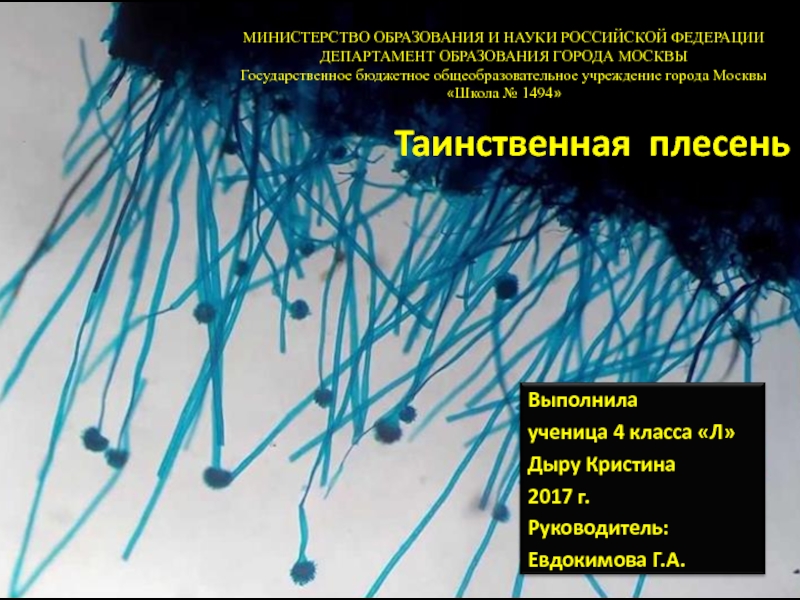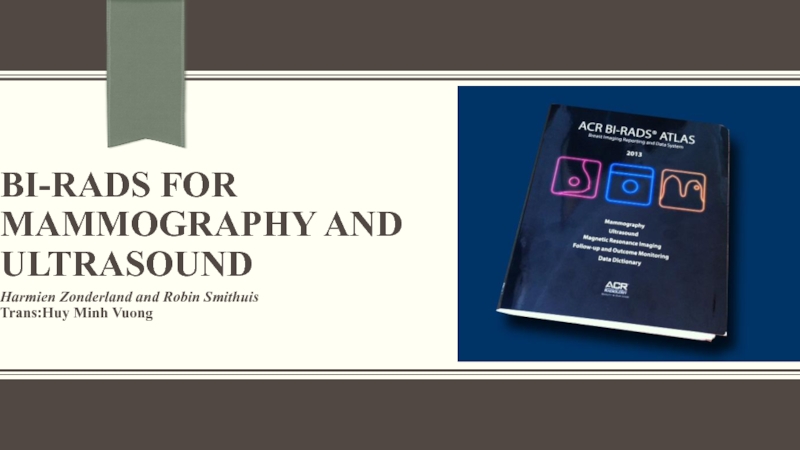Разделы презентаций
- Разное
- Английский язык
- Астрономия
- Алгебра
- Биология
- География
- Геометрия
- Детские презентации
- Информатика
- История
- Литература
- Математика
- Медицина
- Менеджмент
- Музыка
- МХК
- Немецкий язык
- ОБЖ
- Обществознание
- Окружающий мир
- Педагогика
- Русский язык
- Технология
- Физика
- Философия
- Химия
- Шаблоны, картинки для презентаций
- Экология
- Экономика
- Юриспруденция
The position of French in the XII-XIII centuries. The London dialect in late
Содержание
- 1. The position of French in the XII-XIII centuries. The London dialect in late
- 2. The position of French in the XII-XIII
- 3. In Middle English there are many mentions
- 4. Similar feelings are expressed in the 14th
- 5. The Norman conquest put an end to
- 6. The London dialect in late ME. Written
- 7. The main ME documents belong to the
- 8. South-West. Layamon, Brut ( a verse history
- 9. Midland dialectsWest Midland. Legends of Catherine, Margaret
- 10. East Midland.King Horn (romance, early 13th century)Havelock
- 11. London.Proclamation by Henry III (1258), the earliest
- 12. Scotland.Barbour Bruce (poem about Bruce’s struggle for
- 13. Thank you for your attention!
- 14. Скачать презентанцию
Слайды и текст этой презентации
Слайд 1The position of French in the XII-XIII centuries. The London
dialect in late ME. Written records in the different dialects.
студенты группы Л/б-18-1-1(о) Мазуркевич Л.А, Книгина А.АСлайд 2The position of French in the XII-XIII centuries.
During several
centuries the ruling language in England was French.
It was
the language of the court, the government, the courts of law and the church. The English language was reduced to a lower social
sphere: the main mass of peasantry and towns people. The relation
between French and English was, thus, different from that between
Scandinavian and English:
French was the language of the ruling class.
Слайд 3In Middle English there are many mentions of this
position of
the English language. Thus, for instance,
Robert of Gloucester says in
his Chonicle (late13th century):
‘Thus came England under Normandy’s power.
and the Normans could not speak any language
but their own, and spoke French as they did at
home, and taught their children so. So the noblemen
of this land, who came from their blood, stick to the
same language they brought from home. For unless
a man speaks French, people think little of him; but
low man stick yet to English and to their own language.
I believe there are in all world no countries which do no
stick to their own language except England alone’
Слайд 4Similar feelings are expressed in the 14th century
by Ranulphus Higden
(died in 1364)in his Polychronicon,
Written in Latin, translated in English
in 1387 by John Trevisa:‘This spoiling of the mother tongue is because of two things: One is, for children at school, against
the usage and manner of all other nations, are completed to abandon their own language and to construe their lessons and their subjects in French, and have done so since the Normans first came into England. Also gentlemen’s children are taught to speak French from the time they are rocked in their cradle and can speak and play with a child’s toy’
Слайд 5The Norman conquest put an end to the dominating position
of the West Saxon literary language. In the 12th and
13th centuries all English dialects were on an equal footing and independent of each other. In some of them, especially in the North, Scandinavian influence on the vocabulary became more pronounced.Under such circumstances, with two languages spoken in the country, they were bound to struggle with each other. This process lasted for three centuries – the 12th ,13th and 14th . Its results were twofold:
The struggle for supremacy between French and English ended in favour of English.
The English language emerged from this struggle in a considerably changed condition: its vocabulary was enriched by a great number of French words, while its grammatical structure underwent material changes.
Слайд 6The London dialect in late ME. Written records
in the
different dialects.
In the period following the Norman conquest the same
dialects continue to develop which existed in OE. But according to a tradition now firmly established, they are given new names. The Northumbrian dialect is now called Nothern , Mercian is called Midland, and West Saxon and Kentish are united under the name of Southern. The Midland dialect is subdivided into West Midland and East Midland.
The dialect of London combines East Midland and Southern features.
Слайд 7The main ME documents belong to the following dialects
Kent.
Dan
Michel, Ayenbite of Inwit (“Remorse of Conscience”), a religious treaty,
translated from the French (1340).William of Shoreham, Poems (14th century).
Poema Morale (anonymous, early 13th century).
Southern dialects
Слайд 8South-West.
Layamon, Brut ( a verse history of Britain, imitated
from an Anglo-Norman poem by Wace, early 13th century. Southern
dialect with Midland admixtures).Ancren Riwle (“Statute for Nuns”), early 13th century, probably adaptation of a Midland original.
Robert of Gloucester, Rhymed Cronicle (ab. 1300).
John Trevisa, translation of the monk Ranulphus Hidgen’s Latin Polychronicon. (1387)
Слайд 9Midland dialects
West Midland.
Legends of Catherine, Margaret and Juliana (13th
century).
William of Palerne (romance, early 13th century)
Sir Gavayne and the
Green Knight and other poems by the same anonymous author (latter half of the 14th century).Слайд 10East Midland.
King Horn (romance, early 13th century)
Havelock the Dane (13th
century)
Orm, Ormulum (religious poem, early 13th century)
Robert Mannyng of Brunne,
Hadlyng Synne (“Manual of Sins”)Genesis and Exodus (13th century)
Debate of Body and Soul (13th century)
Peterborough Chronicle (sequel to the Anglo-Saxon Chronicle, for the years 1132-1154)
3
Слайд 11London.
Proclamation by Henry III (1258), the earliest official document in
English since the conquest
Adam Davy, Poems (early 14th century)
Works by
Chauser and GowerRichard Role de Hampole, The Prick of Conscience (religious poem, the former half of 14th century)
Towneley Plays (14th century)
York Plays (the former half of 15th century)
G.Chauser
